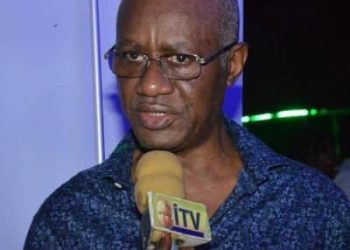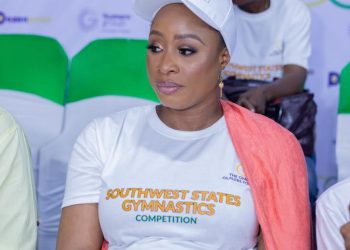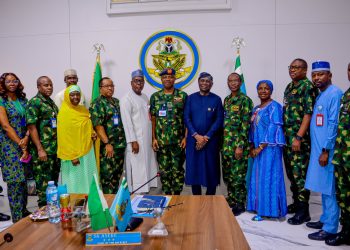By Tolulope Oguntimehin
In recent days, I have watched, listened, and read with great interest about the tireless efforts being made by the National Sports Commission under the chairmanship of Mallam Shehu Dikko and the Director General,Hon. Bukola Olopade and Nigeria Football Federation (NFF) led by Alhaji Ibrahim Gusau to address the long-standing divisions among the various supporters’ clubs in Nigeria. I must say, I am deeply impressed by the leadership of Ibrahim Gusau and the NFF for the remarkable steps they have taken within their time in office. Gusau, in particular, has demonstrated a rare commitment to prioritizing the overall interest of the nation over personal or factional gains. This selfless approach to leadership is not only commendable but also a breath of fresh air in Nigerian sports administration.
Gusau could have easily chosen to maintain the status quo, continuing to support one particular group or even fueling further division among the supporters’ clubs. But he refused to take the easy path. Instead, he chose to tackle the issue head-on, showing a level of courage and vision that is truly inspiring. Just a few days ago, I was thrilled to learn that the NFF successfully brokered an agreement among the various supporters’ clubs during a meeting held in Abuja. At this meeting, all parties came together, set aside their differences, and signed a resolution to establish an interim body to oversee the association. This interim body will work towards creating a framework for a general election in the future. This development is a significant step forward, and I cannot overstate how happy and hopeful it makes me feel.
However, as I reflected on this progress, something important crossed my mind—a thought that I believe the NFF should seriously consider as they move forward. While the idea of holding elections at a later date is a positive step, I wonder if it will truly provide a lasting solution to the deep-rooted issues plaguing the supporters’ clubs. The reality is that these clubs are not just simple organizations; they are complex entities with established structures, executives, and associations operating at both state and national levels. Over the years, these groups have built connections with individuals and private companies, which have become vital sources of revenue for them. Simply collapsing these structures into one unified body might not be the ultimate solution. In fact, I fear that the divisions could resurface in the future, especially after Gusau’s tenure comes to an end.
Here’s what I propose: since supporters’ clubs are not government institutions but rather driven by private individuals with a deep passion for the game, why not organize and run them like a company? Let me explain what I mean. Under this model, the president of each major supporters’ club would become a member of a national executive board. The presidency of this board would then rotate among these leaders every two years. This way, each group can maintain its unique structure and identity at both the state and national levels, continuing to grow and thrive independently. At the same time, they would come together under one umbrella at the national level, united under a rotating presidency that oversees and makes decisions on behalf of all the supporters’ clubs.
This approach would allow every group to preserve its grassroots connections, maintain its revenue streams, and continue to expand its supporter base while fostering unity at the national level. It would also ensure that no single group feels marginalized or excluded, as the rotating presidency would give everyone a fair chance to lead. By adopting this model, I believe peace and harmony can finally return to the supporters’ clubs. The current strategy of holding elections and attempting to collapse all structures into one might only serve as a temporary fix. Given the level of exposure and development I have witnessed over the past decade, I am convinced that a more innovative and inclusive approach is needed to achieve a lasting resolution.
If we continue down the current path, the problem of division is likely to recur, especially after Gusau’s tenure ends. But by embracing a rotational leadership model that respects the individuality of each supporters’ club while promoting unity at the national level, we can create a sustainable solution that benefits everyone. This is not just about resolving conflicts; it’s about building a stronger, more united front that can truly support Nigerian football with passion, dedication, and unity. Let us seize this opportunity to create a legacy of collaboration and progress for the supporters’ clubs—a legacy that will endure for generations to come.















